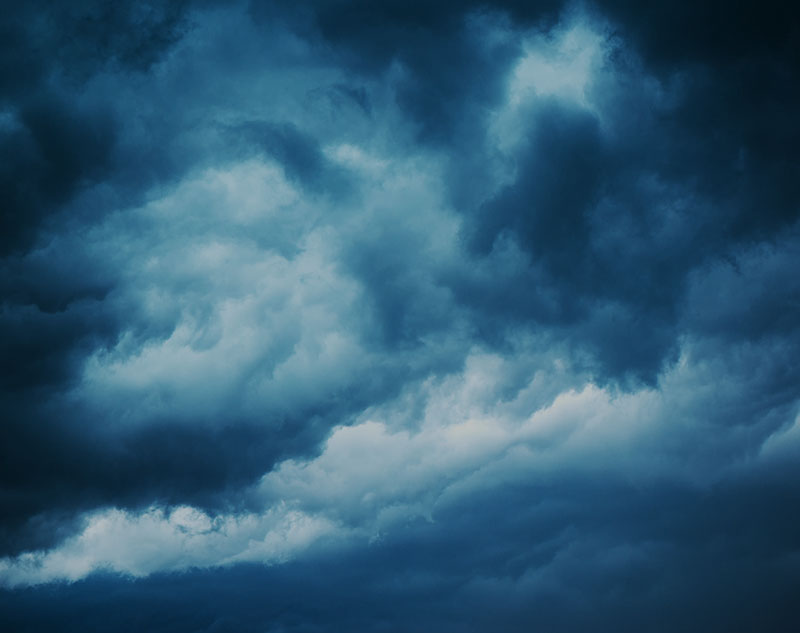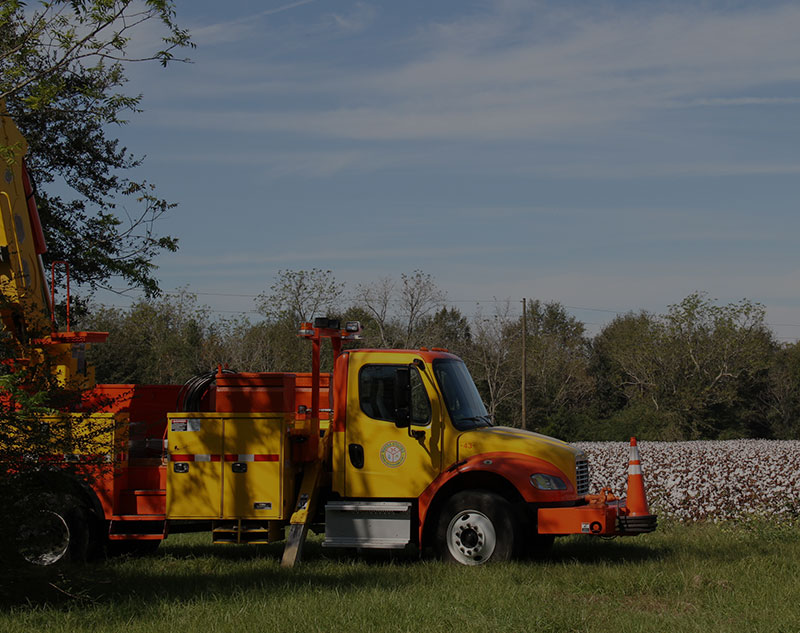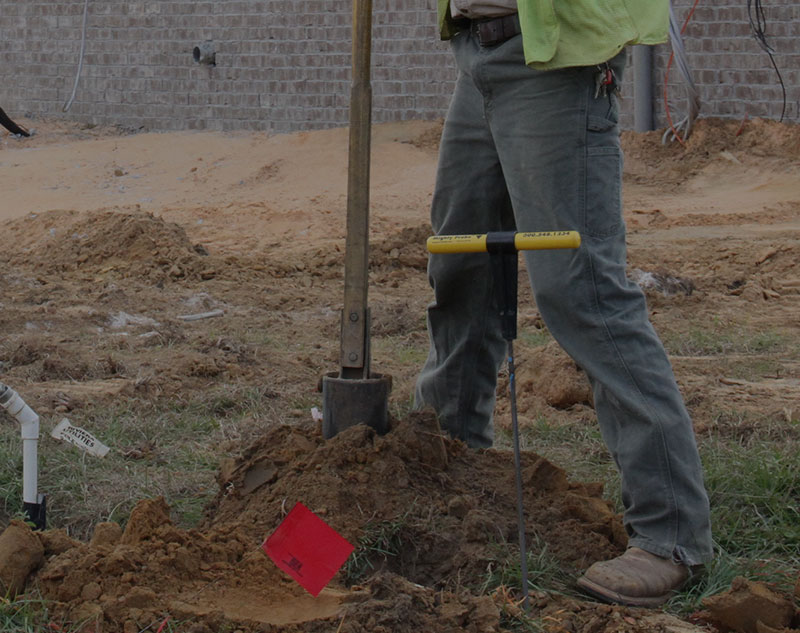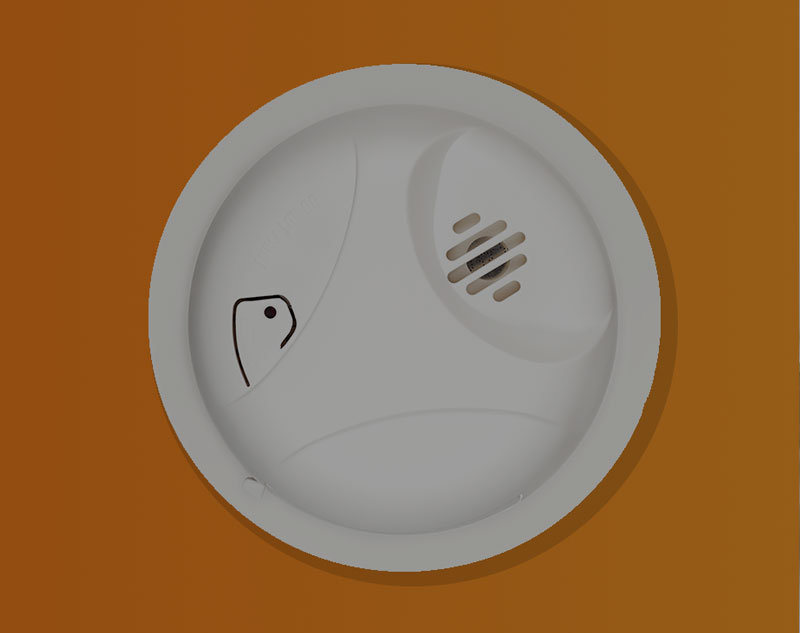Hurricane Safety
Are you prepared for a hurricane? Check out the resources below to make sure you and your family are ready if a disaster were to hit.
Hurricane Tracking Maps: (.pdf)
Before a Storm
- Listen to the radio or watch television for forecasts and possible warnings. Have a battery-operated radio on hand.
- Bring in or tie down loose outdoor objects.
- Prepare your house. If your home is equipped with awnings, lower them, or purchase approved storm panels. If these are not available, obtain strong plywood to cover your windows. If you cannot cover your windows, use a windowless room as a refuge.
- Listen to county and state officials regarding evacuations and shelter locations.
- Gather emergency supply items including water, flashlights, batteries, first-aid kit, extra medicine, non-perishable food, manual can opener, fire extinguisher, candles and matches, toilet articles and sanitary needs.
During the Storm
- Remain inside. Listen to your radio for the all clear. Do not be misled by a lull. It may by the eye of the storm passing.
- Use your telephone for emergencies only.
- Conserve refrigeration. If you lose power, open the refrigerator only when needed.
After the Storm
- Stay clear of downed power lines, trees and debris.
- Listen to instructions from local officials.
- Do not drive across flooded roadways.
- Stay clear of moving water especially near rivers, streams and drainage systems.
- Stay tuned to radio (or TV if available) for weather and news bulletins.
Hurricane Preparedness and Safety
Gather essential supplies and papers to take with you in case of an approaching hurricane.
You will need the following supplies and papers when you leave your home; put them all together in a duffle bag or other large container in advance:
- Flashlight with plenty of extra batteries
- Battery-powered radio with extra batteries
- First aid kit
- Prescription medications in their original bottle, plus copies of the prescriptions
- Eyeglasses (with a copy of the prescription)
- Water (at least one gallon per person is recommended; more is better)
- Foods that do not require refrigeration or cooking
- Items that infants and elderly household members may require
- Medical equipment and devices, such as dentures, crutches, prostheses, etc.
- Change of clothes for each household member
- Sleeping bag or bedroll and pillow for each household member
- Checkbook, cash, and credit cards
- Map of the area
Important papers to take with you:
- Driver's license or personal identification
- Social Security card
- Proof of residence (deed or lease)
- Insurance policies
- Birth and marriage certificates
- Stocks, bonds, and other negotiable certificates
- Wills, deeds, and copies of recent tax returns
If you have only moments before leaving, grab these things and go!
- Medical supplies: prescription medications and dentures.
- Disaster supplies: flashlight, batteries, radio, first aid kit, bottled water
- Clothing and bedding: a change of clothes and a sleeping bag or bedroll and pillow for each household member
- Car keys and keys to the place you may be going (friend's or relative's home)Power Outage at Home
- Conserve where you can. Cutting your energy consumption will reduce the overall statewide demand for electricity.
- You may not have any notice before an outage occurs; stay tuned to local news for the latest information. Outages can last for long periods of time during a hurricane or storm.
- Keep emergency supplies on hand, including:
- Flashlights with fresh batteries
- A portable, battery-powered radio
- A wind-up or battery-powered clock
- Water and nonperishable food
- A manual can opener
- Assist family members or neighbors who may be vulnerable if exposed to high temperatures for extended periods.
- Have either a cell phone or hard wire, single-line telephone. Cordless phones will not work without electricity.
- Know how to manually open and close any electric garage door, security door or gates.
- Protect sensitive electric equipment, such as computers, VCRs and televisions, by installing surge suppressors or other power protection devices.
- Make sure your smoke alarms have fresh batteries. Even those alarms that are wired to your home's electrical system should have a fresh back-up battery.
- Have an emergency plan in place, including back-up power supply, if a member of your household depends on life support or needs other medical equipment. This applies to all power outages.
- Identify the operating requirements of gas equipment. During an outage, appliances with electronic ignitions will not work because electricity is needed to ignite the natural gas. In addition, appliances requiring fans or other electric devices to run (such as central heating units and gas clothes dryers) won't operate.
Power Restoration and Restoration Goals
Our first goal in restoring power is safety -- to the public and to our crews. This is accomplished by locating downed lines and damaged areas and making sure the power to that location is shut off.
Our next goal is to restore as many customers as soon as possible, in priority order. Repair work that will restore service to essential facilities or to many customers is done before work that will restore service to only one or two customers.
Frequently, we learn of outages when customers phone us to say they have lost power, or one of our crews spots and reports an outage. During storms, widespread outages can occur across hundreds of square miles almost at once and the source may be difficult to find.
Once a damaged area is pinpointed, the equipment and personnel needed to make the repairs are determined. Crews are then dispatched to make the repairs.
Transmission lines get first priority because they serve large numbers of customers and large geographic areas.
Distribution substations receive second priority because of their critical linking and switching function. If they are out of service the system not only has the equivalent of a blocked intersection, we also lose our switching ability to reroute power around damaged areas.
- High priority goes to public service and emergency service agencies like hospitals, police, fire, water pumping stations, communication facilities, and critical service to small groups or individuals.
- Neighborhoods, businesses, industrial and agricultural facilities are the next priority. Our objectives are to get as many people back on as soon as possible, and to minimize economic losses to these customers.
- The next priorities are single residences and small groups of customers on lines that extend outward from more densely networked areas. Delays in restoring these lines, which serve the fewest customers, stem from the need to concentrate our efforts where we can get the largest number of customers back on line the fastest.
- Sometimes customers may see lights come back on across the street or nearby, but remain without power themselves. One reason is that not all circuits are restored at once, and different parts of a neighborhood may be on different circuits. Another might be that the restored customer's service comes directly off a primary line, which is repaired first, while the customer without power is served off a secondary line. During major storms, some customers are unfortunately in areas that are temporarily inaccessible to our crews due to floods, trees fallen across roads, or where safety is an issue. Riviera Utilities works with other services to clear or restore these areas as quickly as possible so we can get to the damaged area and make repairs. We appreciate the patience of our customers who have to wait.
Downed power lines
During storms and other severe weather, downed power lines can create hazards. Always treat a downed power line as if it were live and remember that ANY contact with a power line is potentially lethal.
Downed power lines are dangerous because they carry an electric current that can instantly cause injury or possibly death. Sometimes even a telephone line can be energized. For example, following a storm you notice a downed telephone line in your yard. While the telephone line typically is not energized, if it is touching a power line it could be extremely dangerous. Be aware of all downed lines and immediately report the problem to your local police, fire department or Riviera Utilities.
If you are in a vehicle that comes in contact with a downed power line, stay put and if you can, honk your horn and lower your window to alert passers-by. Caution them to stay away from the vehicle and ask them to call the power company and emergency officials to report the problem. If you must leave the vehicle, remove all loose items -- handbags, loose clothing, etc. Jump clear and avoid touching the car and the ground at the same time. Land with both feet together and shuffle away from the car.
Generators
Standby generators can come in handy during storm-related outages. However, be sure that your generator is installed by a qualified electrician so that the generator's circuits and Riviera Utilities circuits are not connected - in other words, they must be "isolated." If they're not properly isolated, customer-generated power can flow back to the power line, electrocuting an Riviera Utilities worker attempting to restore power. Conversely, if the circuits are not properly isolated, power distributed from Riviera Utilities can lead to overheating the generator. This could cause an electrical fire at your home. The most common isolation method is to install a double-throw double-pole transfer switch.
Portable generators that are not properly isolated could lead to the same hazards. To properly isolate portable generators, customers should be careful that they never connect the generator to an electrical outlet. Instead, appliances should be connected directly to the generator.
The easiest way to use a generator is to simply plug the equipment to be operated directly into the proper outlet on the generator. Never connect the generator's electrical output to any live home or building electrical circuits. Never plug a generator into a wall outlet.
Also:
- Avoid contact with bare wires and terminals.
- Use a ground fault circuit interrupter (GFCI) in any damp or highly conductive area.
- Consult a licensed electrician to choose a generator and make certain it meets national and local electrical code requirements.







